 Yesterday, WhitServe LLC filed a lawsuit against Apple alleging infringement of a patent WhitServe owns. Filed in the U.S. District Court for the District of Connecticut, the lawsuit
Yesterday, WhitServe LLC filed a lawsuit against Apple alleging infringement of a patent WhitServe owns. Filed in the U.S. District Court for the District of Connecticut, the lawsuit
The patent, U.S. Patent No. 7,921,139, is described as a “System for sequentially opening and displaying files in a directory.” Invented by Wesley W. Whitmyer, Jr.—sole member of WhitServe LLC according to a business search for the Connecticut company—the patent was filed December 1, 2006.
The allegedly infringing Apple products include Mac OS X Leopard, Mac OS X Lion, and Mac OS X Mountain Lion. According to the complaint, Apple introduced the “Quick Look” feature into its operating system with the release of Mac OS X Leopard on October 26, 2007—nearly one year after the patent at issue was filed. The complaint describes the Quick Look feature as allowing a user to “instantly preview almost any file, and even play media files, without opening an application.”
After detailing 37 ways in which Quick Look infringes on the plaintiff’s patent, the complaint asks for injunctive relief as well as damages for harm suffered.
Unlike many patent lawsuits against the technology giants like Apple, this suit stands out as being by the actual inventor of the patent at issue, rather than merely a patent holding company. Whether the merits of the suit will pan out for the plaintiff remains to be seen.

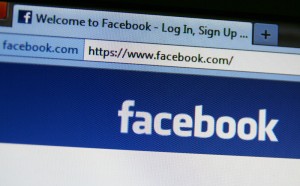
 Yesterday, on November 12, 2012, Texas company NovelPoint Tracking LLC filed a lawsuit against Apple Inc. for patent infringement. Brought in the U.S. District Court for the Eastern District of Texas, the suit alleges that certain Apple products, and specifically the iPhone 4S, infringe on a patent owned by the plaintiff.
Yesterday, on November 12, 2012, Texas company NovelPoint Tracking LLC filed a lawsuit against Apple Inc. for patent infringement. Brought in the U.S. District Court for the Eastern District of Texas, the suit alleges that certain Apple products, and specifically the iPhone 4S, infringe on a patent owned by the plaintiff.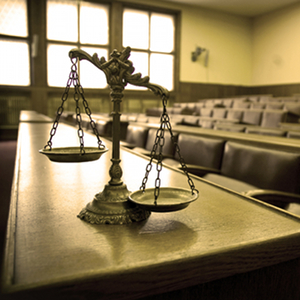 Apple must pay more than $368 million in damages to VirnetX Inc. according to a jury verdict returned in federal court yesterday (see it below). The same day the verdict was reached, VirnetX and Science Applications International Corporation
Apple must pay more than $368 million in damages to VirnetX Inc. according to a jury verdict returned in federal court yesterday (see it below). The same day the verdict was reached, VirnetX and Science Applications International Corporation 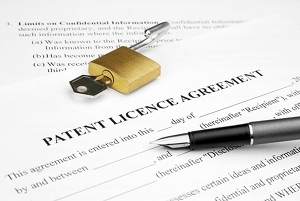 A federal court dismissed
A federal court dismissed 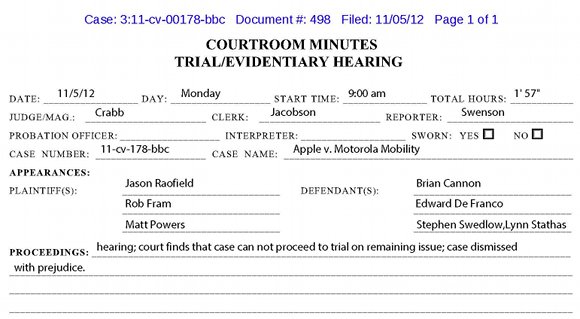
 After three years, language-learning software company
After three years, language-learning software company  A snippy apology is apparently not what the judges involved in Apple’s U.K. patent litigation over Samsung tablets ordered, according to
A snippy apology is apparently not what the judges involved in Apple’s U.K. patent litigation over Samsung tablets ordered, according to  On Monday, Apple filed an
On Monday, Apple filed an 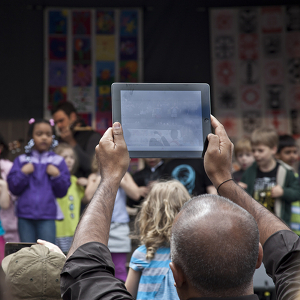
 Yesterday, WhitServe LLC
Yesterday, WhitServe LLC 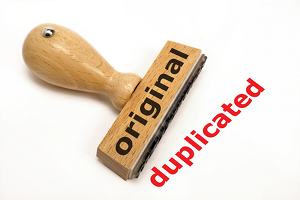 Facebook, online advertising agency adSage, and a web-based wholesaler of Chinese goods are named as defendants in a new class-action trademark lawsuit accusing them of enabling the placement of, or placing ads for, counterfeit NFL apparel on the social network. (read it below)
Facebook, online advertising agency adSage, and a web-based wholesaler of Chinese goods are named as defendants in a new class-action trademark lawsuit accusing them of enabling the placement of, or placing ads for, counterfeit NFL apparel on the social network. (read it below)